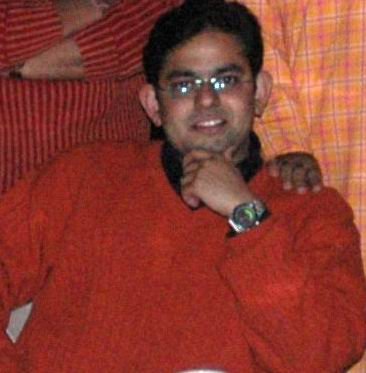The Blind Watchmaker
In one of my earlier posts, I had expressed confusion over the fact whether Darwin's theory could explain evolution without any reference to an intelligent force that lends Nature a direction in which to evolve. Given the extreme complexity of biological species, I had argued, it seemed very unlikely that there was no driving force behind their evolution. What would explain the fact that species over generations evolved in order to adapt to their environments. They became more and more articulate in living and making their ilk survive and reproduce.
The instinct of survival can be easily appreciated in the case of humans and other large animals -- all of them are driven by emotions and feelings and want to protect their families from the rest of the world. But, I have wondered many times, what reason or instinct drives reproduction in smaller organisms like viruses. They do not feel anything, do not have brains, do not have emotions nor insecurities that are attributable to larger animals. What, then, prompts them to reproduce, to evolve? Why has Nature programmed them as such? Does it have a purpose? Darwin says it does not.
The Blind Watchmaker by Richard Dawkins is a book that promises to answer all these questions convincingly. I want to be convinced, but am yet to be convinced. Interestingly, Dawkins has stated that anyone before Darwin's theory would either have believed the existence of God as creator of all beings or would have resigned with the inexplicable situation -- like the one I have described here and earlier. I am happy that at least I have reached this confusion -- if some others have faced similar conundrums, what I am not seeing is not very obvious. Hopefully, a reading of the book will convince me of the completeness of Darwin's theory. As I said, I want to be convinced, but so far I have not comprehended what Darwin came up with.
The instinct of survival can be easily appreciated in the case of humans and other large animals -- all of them are driven by emotions and feelings and want to protect their families from the rest of the world. But, I have wondered many times, what reason or instinct drives reproduction in smaller organisms like viruses. They do not feel anything, do not have brains, do not have emotions nor insecurities that are attributable to larger animals. What, then, prompts them to reproduce, to evolve? Why has Nature programmed them as such? Does it have a purpose? Darwin says it does not.
The Blind Watchmaker by Richard Dawkins is a book that promises to answer all these questions convincingly. I want to be convinced, but am yet to be convinced. Interestingly, Dawkins has stated that anyone before Darwin's theory would either have believed the existence of God as creator of all beings or would have resigned with the inexplicable situation -- like the one I have described here and earlier. I am happy that at least I have reached this confusion -- if some others have faced similar conundrums, what I am not seeing is not very obvious. Hopefully, a reading of the book will convince me of the completeness of Darwin's theory. As I said, I want to be convinced, but so far I have not comprehended what Darwin came up with.
Labels: Charles Darwin, Evolution, Religion

